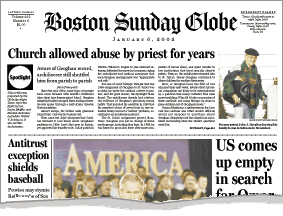My Research
Mental Health outcomes after clergy-perpetrated sex abuse and subsequent loss of community
From the Boston Globe investigation into the Catholic Church to the Houston Chronicle investigation that exposed over 700 cases of child sex abuse covered up by the Southern Baptist Convention, ongoing issues in the Anglican Church of North America, and many more cases I could list, we now know that sexual abuse is widespread in Christian churches in the United States and that church leaders are not responding appropriately.
We now know this about churches, but what happens to the survivors of that abuse? Most often, survivors and their families are the ones who lose community while perpetrators remain. My research focuses on the mental health effects and added trauma experienced by victims when the systems and structures meant to nourish and protect us are complicit in our human desire to wish away atrocities.
Christian churches play a significant role in American life; ideally, they are places for safe community and healthy growth. What happens when sexual violence is perpetrated by leaders of an institution that is exceptionally well-respected in our society?
Mental health professionals know that many clients struggle with mental health because something happened to them and not because something is inherently wrong with them. Humans have legitimate developmental needs for connection and community. Perpetrators of clergy sex abuse exploit our legitimate needs to gain power and control over a vulnerable person, then use their social status as church leaders to escape consequences. Church leaders who perpetrate sexual abuse can often control the narrative and shift blame onto the victim, even when the victim is a child. When victim-survivors do not receive social support and are often blamed and shunned instead, mental health outcomes such as anxiety, depression, dissociation, substance abuse, self-harm, and suicidality are consequences that ripple out into our families and communities.
The lack of adequate social support is significant in developing PTSD in survivors of all types of traumas. Notably, the opposite is also true; helpful community support has a protective effect on mental health after traumatic experiences. My research encourages proper community responses to sexual abuse and contributes to the thriving of individuals, families, and communities.





